Beijing gives Donald Trump a choice: wine, or a shotgun
Chinese officials offer a pugnacious Communist Party foreign relations formula when asked how they will approach Donald Trump’s second administration.
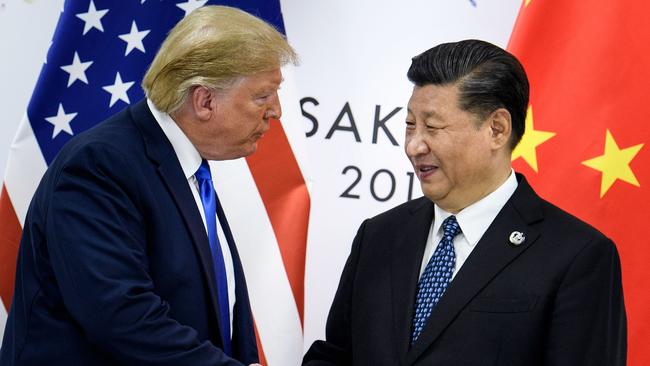
In a telephone call with Donald Trump last week, Chinese leader Xi Jinping dropped a few breadcrumbs for the deal-obsessed US President.
Mr Xi suggested their countries could become “partners and friends”, adding that there were “proper solutions” to the differences between the world’s two most powerful countries.
“The key is to respect each other’s core interest and major concerns,” he said, adding that there were “proper solutions” to their inevitable differences.
Right now, that seems a bit of a stretch after Mr Trump campaigned for months threatening 60 per cent tariffs on all Chinese imports and only weeks ago accused China of not following through on promises to reduce the trade of ingredients used to make fentanyl.
Beijing knows as much. While relieved by Mr Trump’s opening moves, China’s government is braced for trouble – and ready to counterpunch. Chinese officials offer a pugnacious Communist Party foreign relations formula when asked how they will approach Mr Trump.
“We treat our friends with fine wine, but for our enemies we have shotguns,” a Chinese official told The Australian.
The pre-inauguration call was Mr Trump’s idea. Exactly what the President thinks is possible in his dealings with Beijing in his second term is unclear, although he has indicated that top priorities include reducing imports of fentanyl ingredients produced by Chinese manufacturers and shrinking China’s enormous trade surplus with America.
For now, Beijing is offering wine.
The China Daily said the leader-level phone call had begun “a new starting point” for the two countries’ relations. The Global Times said the call had “set the tone”, demonstrating a “positive attitude toward co-operation”.
Chinese foreign ministry spokeswoman Mao Ning said China was “willing to uphold the principles of mutual respect, peaceful coexistence, and win-win co-operation with the new US government”.
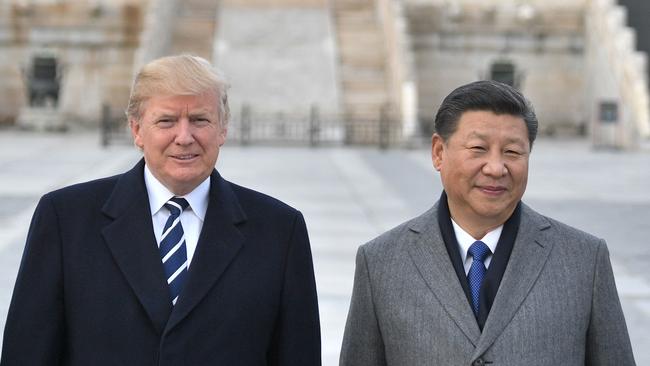
It makes for a striking change from the mood ahead of Joe Biden’s inauguration four years ago. Back then, days before Mr Biden was sworn in, a Chinese foreign ministry spokeswoman used her pulpit in Beijing to repeat a conspiracy theory that Covid had come from a biological lab in America.
But Chinese officials in Beijing are far from convinced the current friendliness is going to last.
Mr Trump’s tariff threats hang gloomily over China’s economy. A businessman in Guangdong, a province in China’s south, recalls how many factories closed down there in the first round of the trade war with the US.
Many moved to other third countries, such as Vietnam or Mexico, to continue to export to America. “But we don’t know how long the third party path would be allowed to exist,” he told The Australian.
Mr Trump and Mr Xi’s second honeymoon could come to a hasty end if tariffs on China are among the blizzard of executive orders Mr Trump will sign during his first days back in the White House.
Chinese officials have for months been preparing plans for counter-attacks of different levels of intensity depending on the level of tariffs imposed.
Early reports from the new White House suggest Mr Trump has decided, for the moment, to hold back on China-specific tariffs. Instead, he has reportedly ordered his team to investigate whether Beijing has complied with the deal he signed with China in his first team.
A report in The Wall Street Journal says Mr Trump has told his advisers he would like to visit China in his first 100 days. It sounds like he has a deal in mind.
For now, Mr Trump has surprised many by in recent days making his top China priority the rescue of TikTok, the Chinese social media behemoth he tried to ban four and a half years ago. It shut down over the weekend in response to a law passed by the US congress, only for Mr Trump to intervene and announce he would give it a 75 day stay – to see if a deal could be done to spin off its US operations.
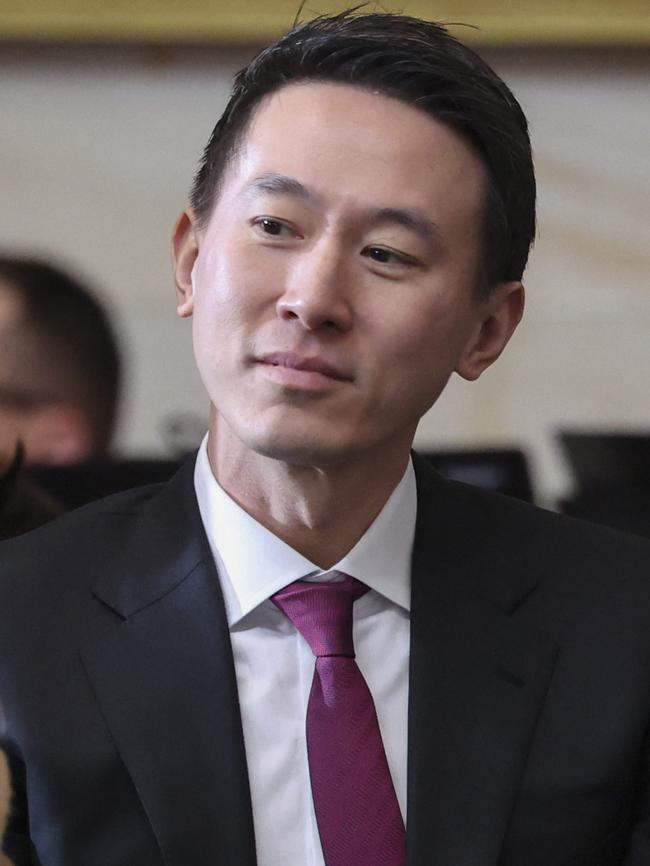
“We are grateful and pleased to have the support of a president who truly understands our platform,” said TikTok chief executive Shou Chew.
Hours later, Mr Trump discussed TikTok’s future with Mr Xi in their Friday phone call. Shortly afterwards, Mr Trump used his social media platform to suggest his interest in a joint venture model for the app that would give “the US 50 per cent ownership”.
Speaking after his inauguration, Mr Trump said if Beijing blocked any sale of TikTok it would be “somewhat of a hostile act”, adding that his administration could impose tariffs on China if it got in the way of a “good deal”.
Mr Chew was at Trump’s inauguration, as was Tesla billionaire Elon Musk, who Chinese officials have reportedly considered as a broker for a potential TikTok sale.
Mr Xi’s envoy for Mr Trump’s inauguration, Vice-President Han Zheng, met separately on Sunday with Mr Musk – who has huge commercial stakes in China – while in Washington.
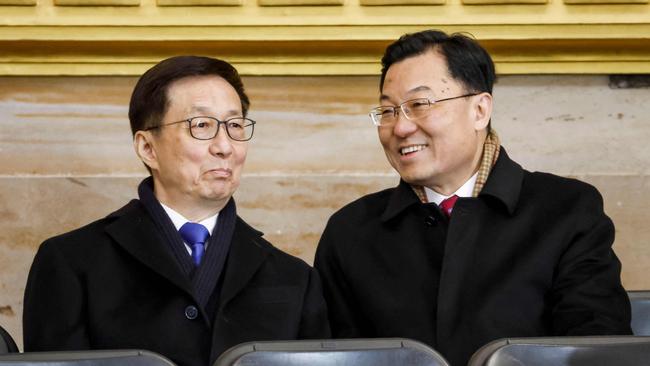
Last month, Tesla started trial production at a new battery factory in Shanghai. It is located near Tesla’s hugely profitable car Gigafactory, which makes all the Tesla vehicles sold in China and Australia.
Mr Musk also made a rare criticism of China’s government, writing on X: “The current situation where TikTok is allowed to operate in America, but X is not allowed to operate in China, is unbalanced”. He added: “Something needs to change.”
China hawks in the Trump administration are for now publicly defending a rescue effort for a social media company they have long denounced as a tool of the Chinese Communist Party. A similar about-face is taking place in Australia as Peter Dutton’s Coalition embraces the platform ahead of the federal election.
Many of China’s nationalist keyboard warriors are gloating at the new US President’s inconsistency. “It is suggested that Trump be given another 10 million zombie fans so that he cannot give up TikTok because Trump is very proud and vain!” wrote one.
But hawks in China are furious. Shen Yi, a fiery professor of international relations at Fudan university, said Mr Trump was attempting a “brutal looting” of a Chinese corporate champion and warned of disastrous consequences if a deal was allowed.
“Taking TikTok is just the beginning of the practice. Once it succeeds, it will immediately be replicated on a large scale,” Professor Shen warned.
Beyond the outrage, the episode demonstrates Mr Trump’s willingness to take positions on China that were politically impossible for Mr Biden or failed candidate Kamala Harris. It has made for a confusing beginning for many of Mr Trump’s “liberal” supporters in China, who hope Mr Trump will more forcibly challenge Mr Xi’s Communist Party.
Some in China think it could lead to something bigger. “These business-driven approaches may offer the most practical way to rebuild trust between the world’s largest economies,” argued Wang Huiyao, the president of the Centre for China and Globalisation, in the South China Morning Post.
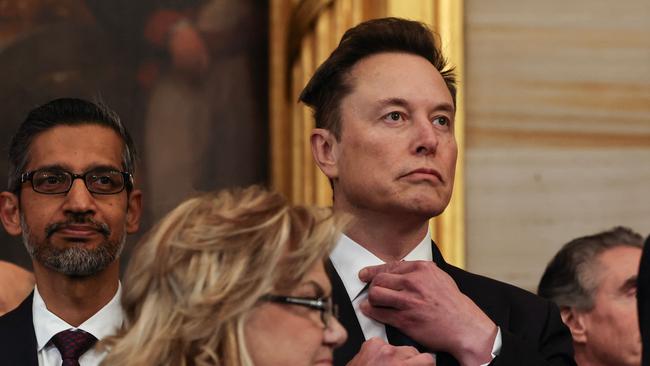
China’s government is far less optimistic. It undoubtedly sees opportunity in the many billionaires and blue-chip CEOs who are frequent visitors to Beijing and have also, in recent weeks, been making pilgrimages to Mar-a-Lago. But Beijing hasn’t forgotten Mr Trump’s first term. That searing four-year period began with Mr Trump receiving a congratulatory phone call from Taiwan’s president for the first time since Washington switched recognition to Beijing in 1979 and ended bitterly with the President blaming the “China virus” for ruining his re-election campaign.
Somewhere in between, Mr Trump smashed the engagement era, beginning a more openly competitive relationship. His appointment of China hawks such as National Security Adviser Mike Waltz and Secretary of State Marco Rubio have Beijing worried about Trump the sequel.
Chinese officials have noted the incoming President’s instincts are for peace. They judge a military conflict with the US as extremely unlikely over the next four years.
But they believe the US also wants to keep China as a “simple economy it can dominate”. And they worry about another trade war, which is the last thing China’s slowing economy needs.
For now, though, Beijing says nothing is predetermined and whether it will favour wine or shotguns will be guided by how the Trump administration behaves.
“The ball is in America’s court,” said one Chinese official.


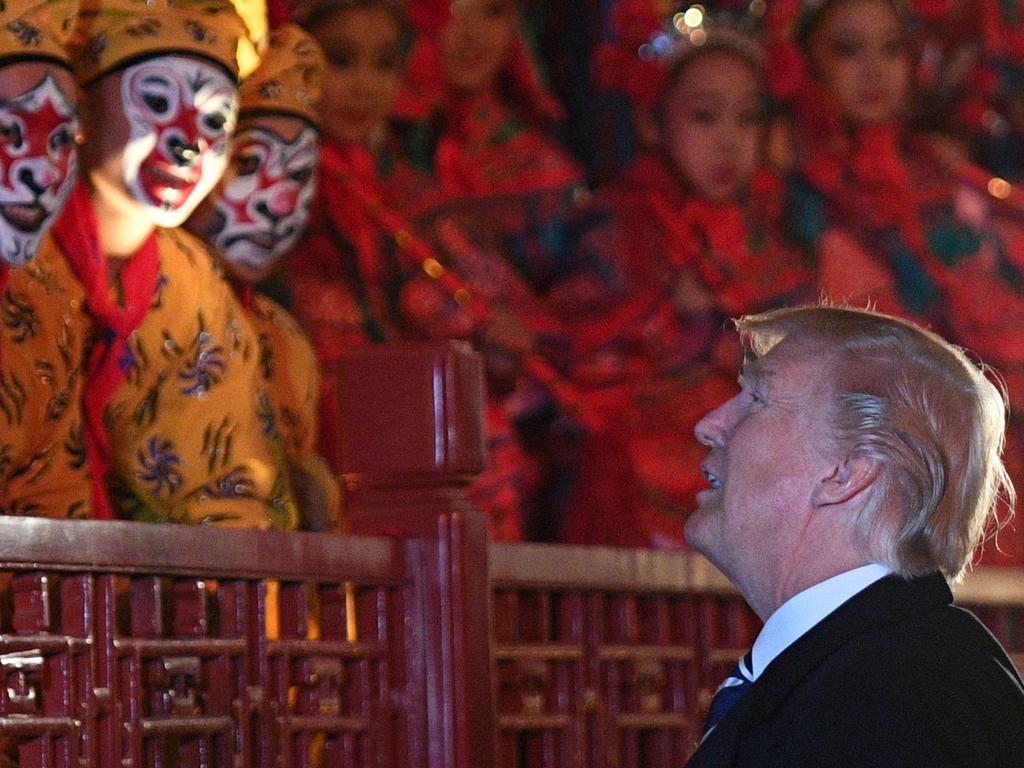




To join the conversation, please log in. Don't have an account? Register
Join the conversation, you are commenting as Logout